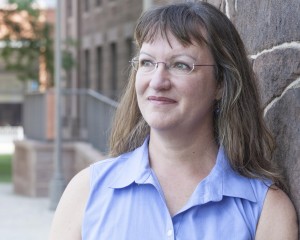Elizabeth McAlister on the State of Vodou in Haiti Today

Professor of Religion Elizabeth McAlister spoke to The Guardian about the state of the Vodou religion in Haiti today.
“Most Americans don’t know that they don’t know what Vodou really is,” said McAlister, who specializes in Haitian Vodou.
The article describes the actual practice of Vodou, and discusses its critical place in Haiti’s history as the first black republic. And turning to McAlister for her expertise, it addresses Vodou’s stance on homosexuality.
“Many, many gays and lesbians are valued members of Vodou societies,” explains McAlister, who has devoted years to researching LGBT in Haitian religion. “There is an idea that Vodou spirits that are thought to be gay ‘adopt’ and protect young adults who then become gay.”
“Vodou ‘does gender’ totally differently than the Christian tradition,” McAlister explains. After all, Vodou has gender fluidity at the core: men might become mediums for female spirits, women for male spirits. “But Christians, especially evangelicals, have zero flexibility for this; they see homosexuality as a sin, period.”
Stigmatized as a primitive, or even wicked religion, Vodou is inherently progressive and inclusive, McAlister continues.
“Vodou tends to be radically unjudgmental,” she explains. “The alcoholic, the thief, the homeless, the mentally ill, all of these people are welcomed into a Vodou temple and given respect.”
In reality, McAlister emphasizes, Vodou is far more similar to a close-knit church community than most Americans could ever imagine.
McAlister is also professor of African American studies, professor of American studies, professor of feminist, gender and sexuality studies, and professor of Latin American studies.

